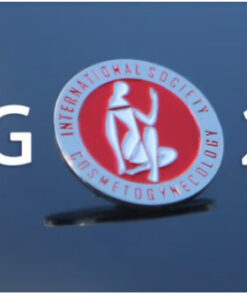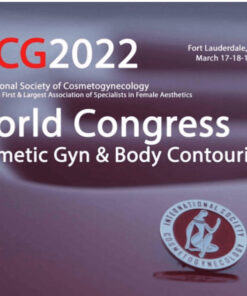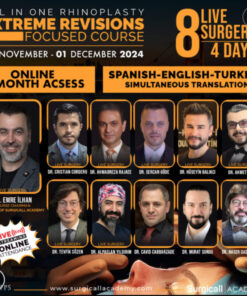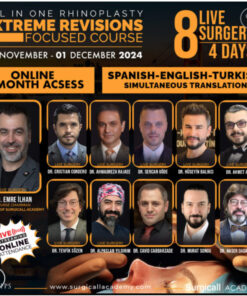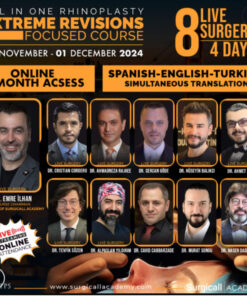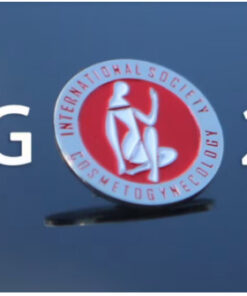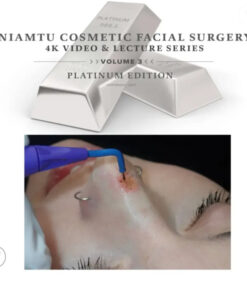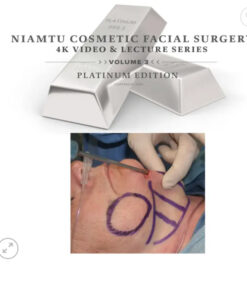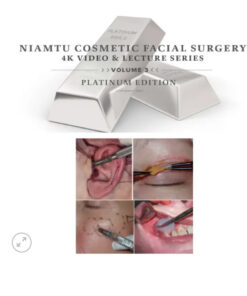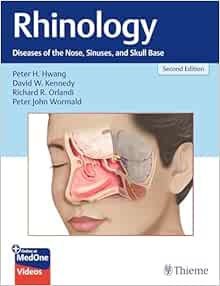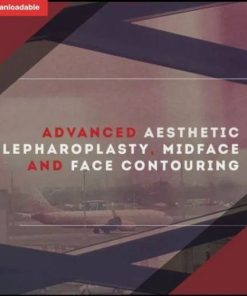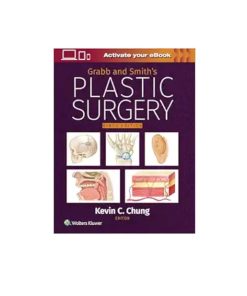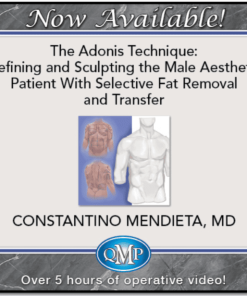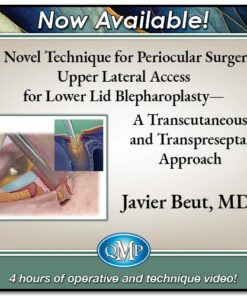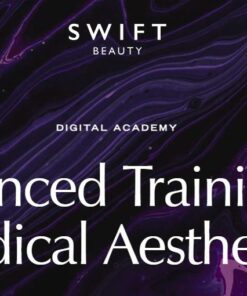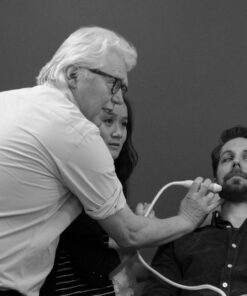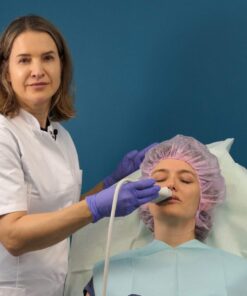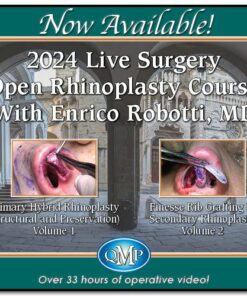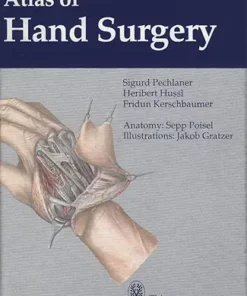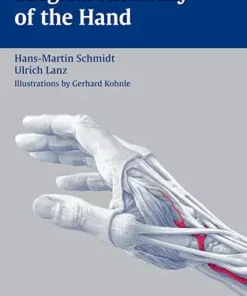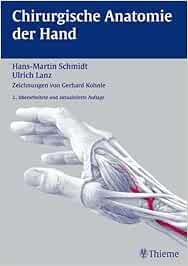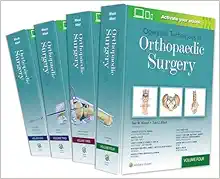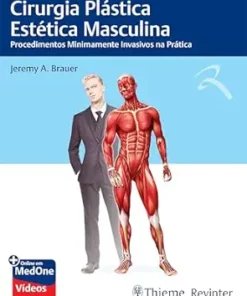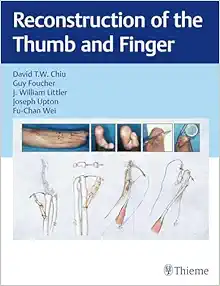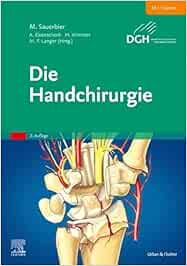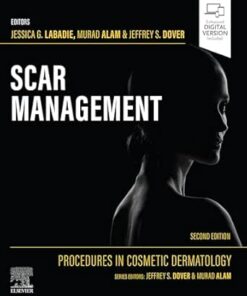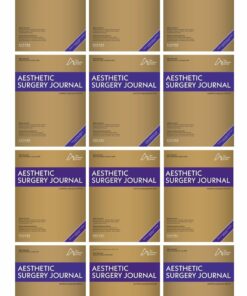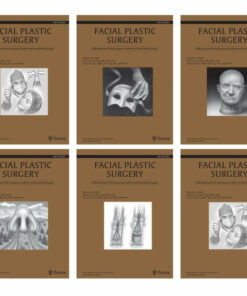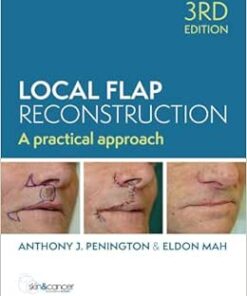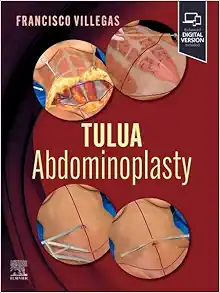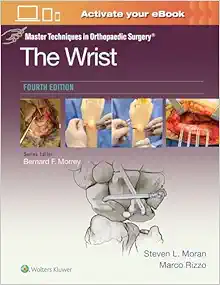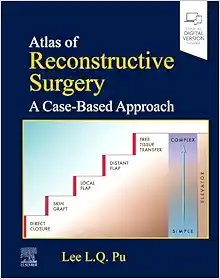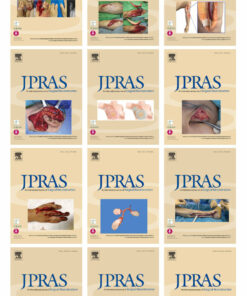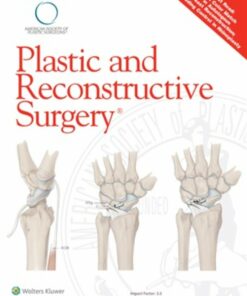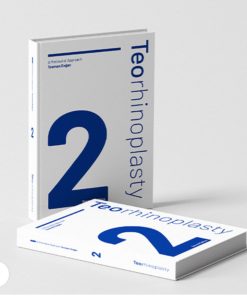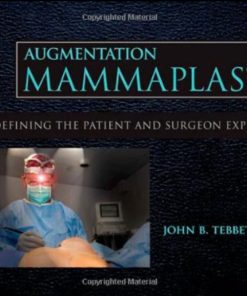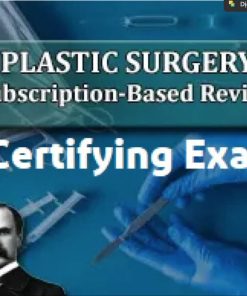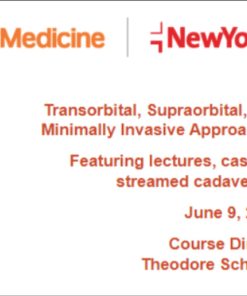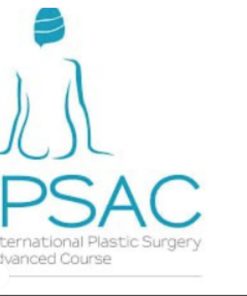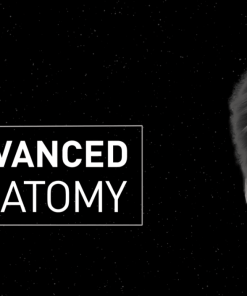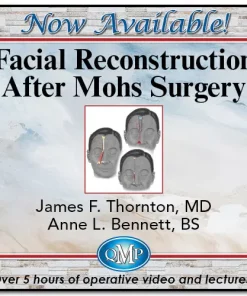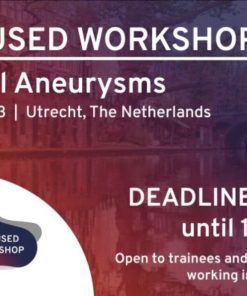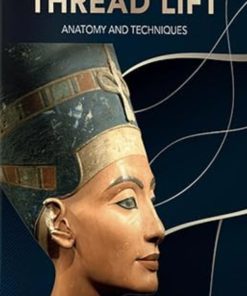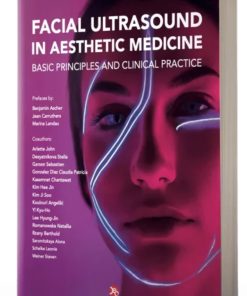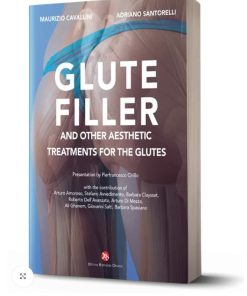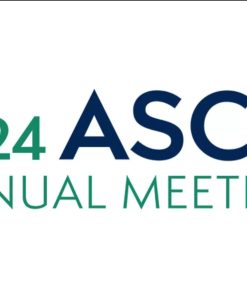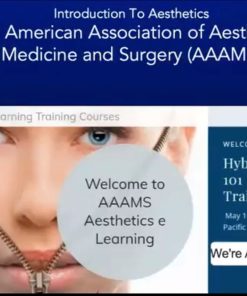- Hardcover: 425 pages
- Publisher: CRC Press; 1 edition (August 12, 2012)
- Language: English
- ISBN-10: 1576263304
- ISBN-13: 978-1576263303
- Format: PDF Original
- ==========================+======================
-
Note : We will send ebook download link after confirmation of payment via paypal success
Payment methods: Visa or master card (Paypal
Advances in Abdominal Wall Reconstruction 1st Edition PDF
$35
by Albert Losken (Editor), Jeffrey E Janis (Editor)
- Biologics in Abdominal Wall Reconstruction: Basic Science and Technical Considerations
- Synthetic Mesh in Abdominal Wall Reconstruction
- Separation of Anatomic Components Method of Abdominal Wall Reconstruction: Application and Advances in Technique
- Minimally Invasive Ventral Hernia Repair
- Management of Postoperative Abdominal Bulges
- The Retro-Rectus Technique for Mesh Placement
Advances in Abdominal Wall Reconstruction 1st Edition PDF
This practical, go-to reference by Drs. Losken and Janis will provide you with the tools you need when addressing a host of abdominal wall problems, ranging from simple to complex hernia repair and abdominal wall reconstruction. It provides information on the latest developments in mesh and biologic materials and their applications for abdominal hernia repair as well as step-by-step surgical technique for ensuring successful outcomes in all types of abdominal wall reconstruction.
Advances in Abdominal Wall Reconstruction presents the range of current options available for surgical repair in a systematic fashion. Treatment options and algorithms provide readers with insights into choices for approaching different problems. Strategies for minimizing morbidity and for avoiding recurrences are also discussed in detail as are helpful tips and tricks and safe and reliable options for dealing with complex problems. New techniques are described along with the evidence-based data on outcomes and numerous case examples to reinforce important concepts. Potential problems and pitfalls are thoroughly covered to help surgeons avoid potential complications. Although the main focus of this book is on surgical technique, it also discusses basic principles, etiology of abdominal defects, organizations strategies and outcomes. A DVD with 3 operative videos complements the book.
The editors have put together an imminently helpful work which should prove invaluable for a broad range of surgical specialties. They are assisted by a multi-disciplinary group of leading experts and pioneers in surgery and plastic surgery.
The book is divided into three parts. The first part focuses on fundamentals with essential chapters devoted to abdominal wall anatomy, hernia defect classification, abdominal wound care and synthetic meshes, and tissue biologics for abdominal wall reconstruction. Parts II and III are devoted to various types of abdominal wall reconstruction as well as simple and complex hernia repair using synthetic meshes and biologics. Chapters within these sections are clinical and technique-oriented, with ample illustrations and photos depicting the different surgical approaches. A key chapter in this section focuses on “Anatomic Components Separation: Applications and Advances in Technique.” This simple, reliable technique is one of the most exciting, recent advances in abdominal wall reconstruction. Another hot topic covered in depth in several comprehensive chapters is that of biologics in complex abdominal wall repair; these materials have revolutionized abdominal wall reconstruction. Critical chapters are included on the science behind biologics as well as specific techniques for using them. Other cutting-edge topics include: laparoscopic hernia repair and management of parastomal hernias, enterocutaneous fistulas, postoperative abdominal bulges (a common, challenging problem), and recurrent ventral abdominal hernias, to name a few. An exciting chapter on abdominal wall transplantation gives readers insight into promising new developments and what lies on the horizon in abdominal wall reconstruction.
Hot Topics
Product details |
Related Products
PLASTIC & RECONSTRUCTIVE SURGERY
PLASTIC & RECONSTRUCTIVE SURGERY
PLASTIC & RECONSTRUCTIVE SURGERY
PLASTIC & RECONSTRUCTIVE SURGERY
ISCG 2022 Cosmetic Gyn & Body Contouring 3-Day World Congress
PLASTIC & RECONSTRUCTIVE SURGERY
PLASTIC & RECONSTRUCTIVE SURGERY
PLASTIC & RECONSTRUCTIVE SURGERY
PLASTIC & RECONSTRUCTIVE SURGERY
PLASTIC & RECONSTRUCTIVE SURGERY
ISCG 2024 Cosmetic Gyn & Body Contouring 3-Day World Congress
PLASTIC & RECONSTRUCTIVE SURGERY
PLASTIC & RECONSTRUCTIVE SURGERY
PLASTIC & RECONSTRUCTIVE SURGERY
uma-institute attractiveness: female beautification & feminization
PLASTIC & RECONSTRUCTIVE SURGERY
uma-institute advanced filler techniques combining CaHA, HA and hybrid fillers
PLASTIC & RECONSTRUCTIVE SURGERY
PLASTIC & RECONSTRUCTIVE SURGERY
PLASTIC & RECONSTRUCTIVE SURGERY
PLASTIC & RECONSTRUCTIVE SURGERY
Niamtu Cosmetic Surgery Platinum Deluxe Full Series Compilation
PLASTIC & RECONSTRUCTIVE SURGERY
Rhinology: Diseases of the Nose, Sinuses, and Skull Base 2e (Original PDF from Publisher+Videos)
PLASTIC & RECONSTRUCTIVE SURGERY
STRUCTURE RHINOPLASTY: Lessons Learned in 30 Years by Dean Toriumi 3-Volumes 2019
PLASTIC & RECONSTRUCTIVE SURGERY
Advanced aesthetic blepharoplasty, midface and face contouring videos course (live surgery)
PLASTIC & RECONSTRUCTIVE SURGERY
Grabb and Smith’s Plastic Surgery, 9th edition (Videos Only)
PLASTIC & RECONSTRUCTIVE SURGERY
Grabb and Smith’s Plastic Surgery, 9th edition (EPUB + Converted PDF)
PLASTIC & RECONSTRUCTIVE SURGERY
PLASTIC & RECONSTRUCTIVE SURGERY
LIPS FOR KISS The Diamond Pack – THE ULTIMATE AESTHETIC MASTERY COLLECTION
PLASTIC & RECONSTRUCTIVE SURGERY
PLASTIC & RECONSTRUCTIVE SURGERY
PLASTIC & RECONSTRUCTIVE SURGERY
drtimpearce Julie Horne Directs, Dr Tim Injects – February 2023
PLASTIC & RECONSTRUCTIVE SURGERY
360° Gluteal Harmonization MasterClass Dr. Roberto Chacur 2025
PLASTIC & RECONSTRUCTIVE SURGERY
SWIFT Beauty DIGITAL ACADEMY Advanced Training in Medical Aesthetics 2024
PLASTIC & RECONSTRUCTIVE SURGERY
Harvard Laser & Aesthetic Skin Therapy: What’s the Truth 2024
PLASTIC & RECONSTRUCTIVE SURGERY
Cutaneous ONLINE COURSE- Anatomy online course (all 7 modules) 2024
PLASTIC & RECONSTRUCTIVE SURGERY
Cutaneous ONLINE COURSE – Clinical application of duplex ultrasound (all 10 modules) 2024
PLASTIC & RECONSTRUCTIVE SURGERY
PLASTIC & RECONSTRUCTIVE SURGERY
PLASTIC & RECONSTRUCTIVE SURGERY
2024 Live Surgery Open Rhinoplasty Course With Enrico Robotti, MD: 2-Volume Video Series
PLASTIC & RECONSTRUCTIVE SURGERY
PLASTIC & RECONSTRUCTIVE SURGERY
PLASTIC & RECONSTRUCTIVE SURGERY
PLASTIC & RECONSTRUCTIVE SURGERY
PLASTIC & RECONSTRUCTIVE SURGERY
PLASTIC & RECONSTRUCTIVE SURGERY
PLASTIC & RECONSTRUCTIVE SURGERY
PLASTIC & RECONSTRUCTIVE SURGERY
PLASTIC & RECONSTRUCTIVE SURGERY
PLASTIC & RECONSTRUCTIVE SURGERY
PLASTIC & RECONSTRUCTIVE SURGERY
Chirurgische Anatomie der Hand, 2nd edition (Original PDF from Publisher)
PLASTIC & RECONSTRUCTIVE SURGERY
PLASTIC & RECONSTRUCTIVE SURGERY
PLASTIC & RECONSTRUCTIVE SURGERY
PLASTIC & RECONSTRUCTIVE SURGERY
Reconstruction of the Thumb and Finger (Original PDF from Publisher)
PLASTIC & RECONSTRUCTIVE SURGERY
Die Handchirurgie, 2nd edition (True PDF from Publisher+Videos)
PLASTIC & RECONSTRUCTIVE SURGERY
Procedures in Cosmetic Dermatology: Scar Management, 2nd edition (EPUB + Converted PDF)
PLASTIC & RECONSTRUCTIVE SURGERY
Essentials of Aesthetic Surgery Q&A Companion (Original PDF from Publisher)
PLASTIC & RECONSTRUCTIVE SURGERY
PLASTIC & RECONSTRUCTIVE SURGERY
PLASTIC & RECONSTRUCTIVE SURGERY
Local Flap Reconstruction, 3rd edition (Original PDF from Publisher)
PLASTIC & RECONSTRUCTIVE SURGERY
TULUA Abdominoplasty: Transverse Plication Technique (Original PDF from Publisher)
PLASTIC & RECONSTRUCTIVE SURGERY
Master Techniques in Orthopaedic Surgery: The Wrist, 4th edition (EPUB)
PLASTIC & RECONSTRUCTIVE SURGERY
Master Techniques in Orthopaedic Surgery: The Wrist, 4th edition (Videos Only)
PLASTIC & RECONSTRUCTIVE SURGERY
A-Z of Plastic Surgery, 2nd Edition (Original PDF from Publisher)
PLASTIC & RECONSTRUCTIVE SURGERY
Atlas of Reconstructive Surgery: A Case-Based Approach: A Case-Based Approach (EPUB)
PLASTIC & RECONSTRUCTIVE SURGERY
Journal of Plastic, Reconstructive & Aesthetic Surgery 2024 Full Archives (True PDF)
PLASTIC & RECONSTRUCTIVE SURGERY
Plastic & Reconstructive Surgery January 2025 – Volume 155 – Issue 1 (True PDF+Videos)
PLASTIC & RECONSTRUCTIVE SURGERY
Lips for kiss full package – package to cover most of face filler techniques
PLASTIC & RECONSTRUCTIVE SURGERY
PLASTIC & RECONSTRUCTIVE SURGERY
Augmentation Mammaplasty with DVD: Redefining the Patient and Surgeon Experience 1st Edition
PLASTIC & RECONSTRUCTIVE SURGERY
The Osler Plastic Surgery Certifying Exam Oral Review (Extracted 2024)
PLASTIC & RECONSTRUCTIVE SURGERY
Transorbital, Supraorbital, and Endonasal 3 MIS Approaches to the Skull Base 2023
PLASTIC & RECONSTRUCTIVE SURGERY
PLASTIC & RECONSTRUCTIVE SURGERY
PLASTIC & RECONSTRUCTIVE SURGERY
South American Plastic Surgery SAPS All Meeting 1st Time In Brazil 2023
PLASTIC & RECONSTRUCTIVE SURGERY
PLASTIC & RECONSTRUCTIVE SURGERY
PLASTIC & RECONSTRUCTIVE SURGERY
PLASTIC & RECONSTRUCTIVE SURGERY
PLASTIC & RECONSTRUCTIVE SURGERY
PLASTIC & RECONSTRUCTIVE SURGERY
CME Nuances in Injectables: The Next Beauty Frontier video course 2024
PLASTIC & RECONSTRUCTIVE SURGERY
PLASTIC & RECONSTRUCTIVE SURGERY
PLASTIC & RECONSTRUCTIVE SURGERY
PLASTIC & RECONSTRUCTIVE SURGERY
Botulinum Toxin A in Aesthetic Medicine Facial and body indications (3rd Edition)-2020
PLASTIC & RECONSTRUCTIVE SURGERY
PLASTIC & RECONSTRUCTIVE SURGERY
PLASTIC & RECONSTRUCTIVE SURGERY
GLUTEFILLER and Other Aesthetic Treatments for the Glutes (OEO)-2024 (PDF + VIDEO)
PLASTIC & RECONSTRUCTIVE SURGERY
PLASTIC & RECONSTRUCTIVE SURGERY
PLASTIC & RECONSTRUCTIVE SURGERY
South American Plastic Surgery Face & Rhino Masters Immersion Course 2020
PLASTIC & RECONSTRUCTIVE SURGERY
The New Face. From Anatomy to Aesthetic Medicine-2019 (PDF + VIDEO)
PLASTIC & RECONSTRUCTIVE SURGERY
PLASTIC & RECONSTRUCTIVE SURGERY
PLASTIC & RECONSTRUCTIVE SURGERY
PLASTIC & RECONSTRUCTIVE SURGERY
2022 Closed Atraumatic Rhinoplasty and FaceLift&NeckLift Course 7
PLASTIC & RECONSTRUCTIVE SURGERY
PLASTIC & RECONSTRUCTIVE SURGERY
PLASTIC & RECONSTRUCTIVE SURGERY
PLASTIC & RECONSTRUCTIVE SURGERY
PLASTIC & RECONSTRUCTIVE SURGERY
PLASTIC & RECONSTRUCTIVE SURGERY






